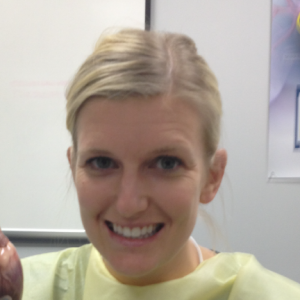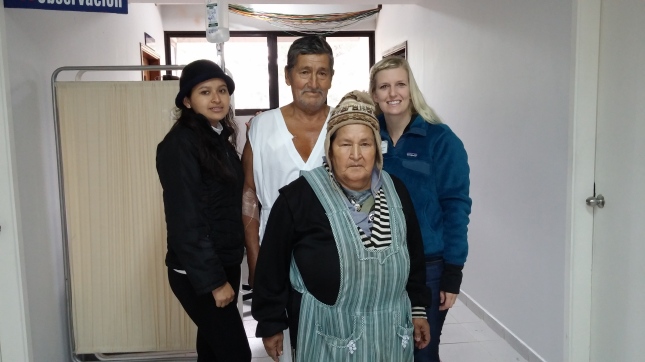Four women...Five days...Eight Implants
 We wrapped up our trip in Santa Cruz with three implants on Friday. We had a warm welcome at our host hospital in Santa Cruz, INCOR, and really enjoyed working there. The staff were gracious, knowledgeable, and eager to learn. The three implants were all different: the first was a new CRT-D (a defibrillator), the second a CRT-P upgrade (a sort of fancy pacemaker), and the third was a CRT-D battery change. It was a long day for everyone, but we felt a great sense of accomplishment when we left the hospital Friday night. When we went back Saturday morning to check on them and finalize the configuration of their implants, all of the patients were doing well, greeting us with smiles. We had them walking the INCOR hallways by 9am, and all three were cleared to go home. It is hard to describe in words the absolute desperate need of these individuals and their families, but I will try with one example.
We wrapped up our trip in Santa Cruz with three implants on Friday. We had a warm welcome at our host hospital in Santa Cruz, INCOR, and really enjoyed working there. The staff were gracious, knowledgeable, and eager to learn. The three implants were all different: the first was a new CRT-D (a defibrillator), the second a CRT-P upgrade (a sort of fancy pacemaker), and the third was a CRT-D battery change. It was a long day for everyone, but we felt a great sense of accomplishment when we left the hospital Friday night. When we went back Saturday morning to check on them and finalize the configuration of their implants, all of the patients were doing well, greeting us with smiles. We had them walking the INCOR hallways by 9am, and all three were cleared to go home. It is hard to describe in words the absolute desperate need of these individuals and their families, but I will try with one example.
Our final patient of the trip, Vicente, had a device that was implanted only two years prior, but was reported to have little life left on the battery. A CRT-D device should last longer than two years, but he was the second person to use this device. Vicente, a humble farmer, had access only to this second-hand device. We met Vicente on Thursday evening, but were unable to test his implanted defibrillator at that time because the Medtronic programmer was being updated so we could use it the following day (the Medtronic devices we brought were the latest models from the company and had never been used in Bolivia before now - special thanks to the local PuenteSol staff, Beatriz and Carlos, who went to huge efforts to get the indispensable update!). Anyway, when we were finally able to check Vicente's defibrillator Friday morning, we discovered it was so depleted it could stop working at any time. To preserve its own energy the device had already gone into a minimal mode, just enough to keep him alive. Vicente described to us that he hadn't been feeling well the last couple of months, which confirmed our worst concerns. He was dependent on the basic function of the device for survival. Even though it might stretch the workday well into the evening, we did not hesitate to add his battery change to our schedule. We couldn’t treat him first, because we needed blood tests and other pre-op prep. We prayed he could wait just a few more hours.
The first two implants that day, although long, went relatively smoothly. With a big smile on his face, Vicente was wheeled in to the catheterization lab and transferred to the operating table at around 5pm. In the middle of the procedure, as Dr. Roberto Mercado held the old device in his left hand while preparing to switch the leads to the new defibrillator, the EKG reading went flat. Dr. Marian was there at his side with her two additional hands to help seamlessly attach the new defibrillator, leaving only the shortest pause in Vicente's heart rhythm until it was resumed. The old defibrillator had given out before our eyes. But now Vicente has one of the world's newest implantable defibrillators in his chest. We all commented on the particularly appropriate name of this new model: Viva! Spanish for "Live"! Thanks to Medtronic and our team, Vicente can now LIVE to enjoy his grandchildren!
While our mission team was small, it takes an army to make these trips a success. Without the support of our many financial donors, device/supply donations, the Solidarity Bridge team, local staff, and everyone else I'm forgetting in my seriously sleep-deprived state, this trip would not have been possible. Special thanks also to our families who have made sacrifices in our absence, and our USA coworkers who have picked up our slack this past week while we have been away. Thank you. Thank you. Thank you.
Susan

